25 Common Food Mistakes People Make Every Day
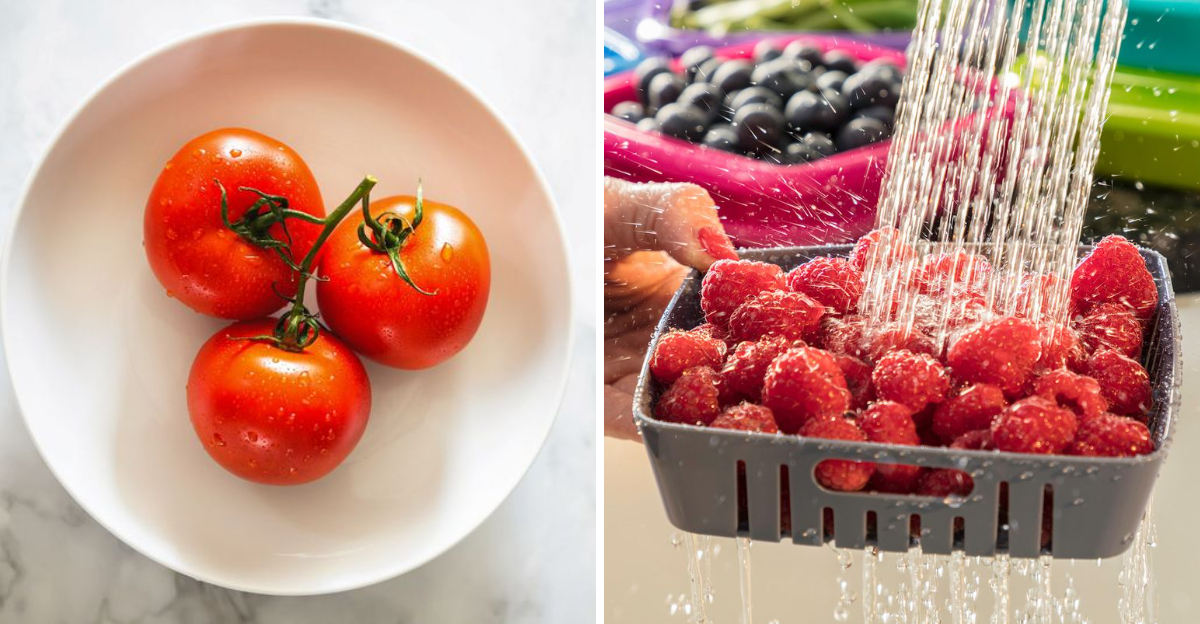
Explore these everyday food errors and learn how to enhance your culinary habits.
1. Storing Tomatoes in the Fridge
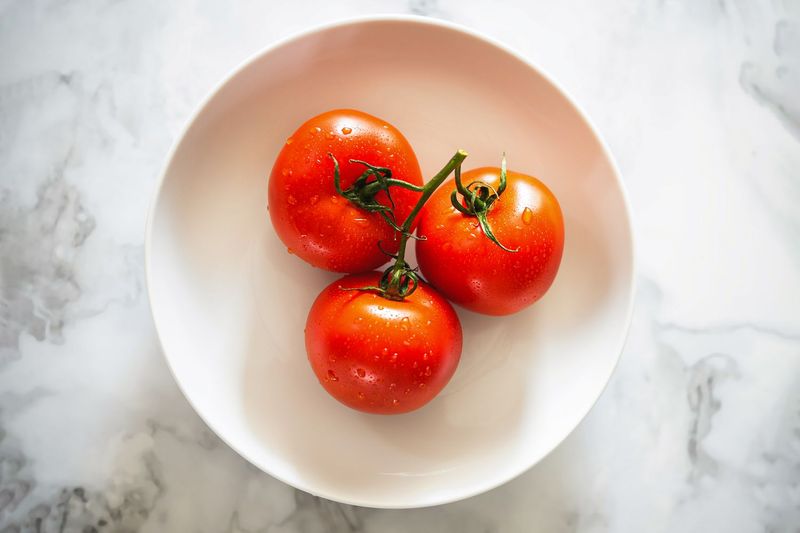
Ever wondered why tomatoes lose their flavor? Placing them in the fridge is like sending them into hibernation. Cold temperatures disrupt their natural ripening process, leading to a mealy texture and muted taste. Instead, keep them on the counter, allowing them to bask in the ambient warmth and develop their full juiciness. Your salads and sauces will thank you for the burst of flavor. Next time, consider a sunlit spot for your tomatoes, and experience the difference. Did you know? Tomatoes are berries in the botanical sense!
2. Washing Berries Too Early
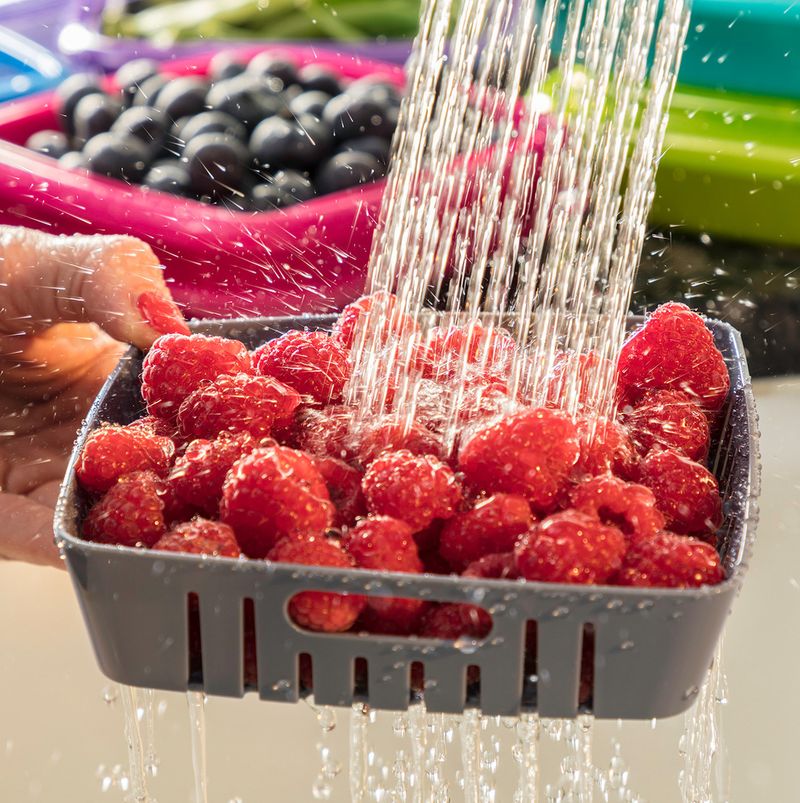
Have you ever grabbed a handful of berries only to find them mushy? Washing them too soon might be the culprit. By rinsing them right after purchase, you inadvertently hasten their spoilage. Moisture speeds up the growth of mold, leading to wasted fruit and disappointment. To savor their natural sweetness, wash them just before consuming. This simple step can prolong their freshness and keep them juicy. Fun fact: Strawberries aren’t true berries, but bananas are!
3. Overcrowding the Pan When Cooking
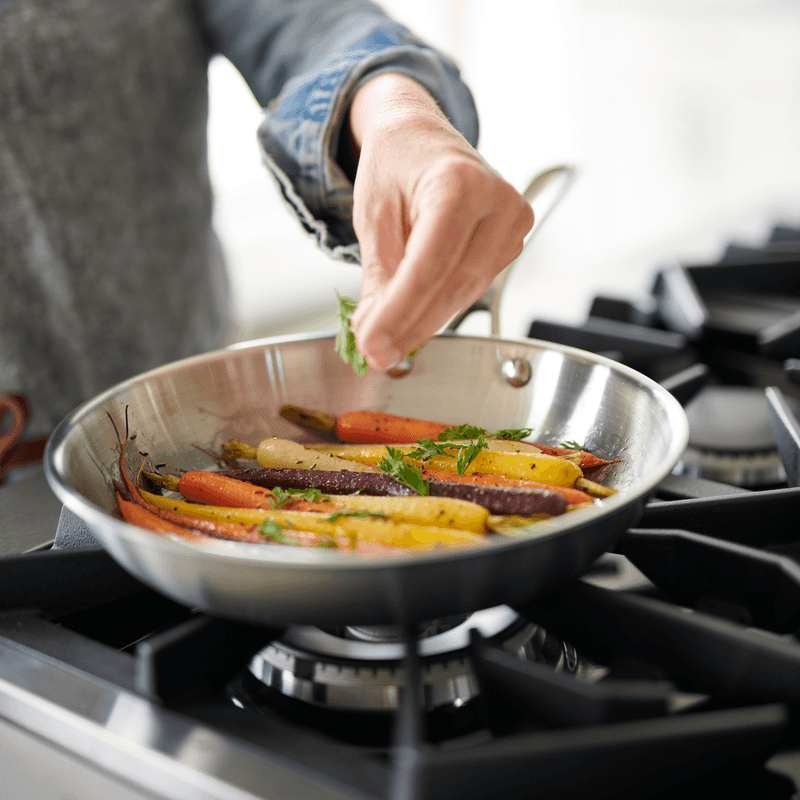
Craving that perfect sear? Overcrowding the pan is your worst enemy. When ingredients are packed too closely, they steam instead of brown, leading to a soggy result. To achieve a crispy exterior with a succulent interior, give your food room to breathe. Cook in batches if needed. By allowing each piece to make contact with the hot surface, you ensure even caramelization. Remember: patience and space yield the best flavors. Curious note: The Maillard reaction is responsible for browning and adds depth to dishes.
4. Not Letting Meat Rest After Cooking
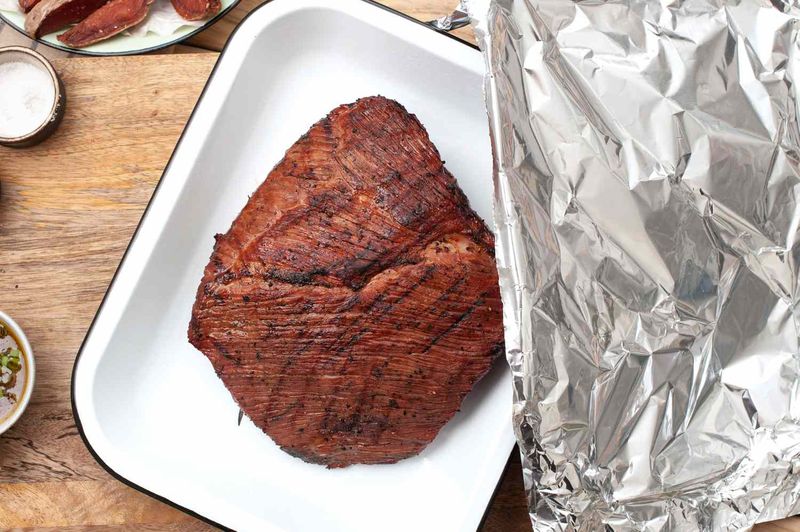
Ever sliced into meat and watched the juices escape? Cutting too soon after cooking is a common misstep. Resting meat allows its fibers to reabsorb moisture, ensuring each bite is succulent and flavorful. This brief pause can make the difference between a dry meal and a juicy delight. Whether it’s steak or chicken, a few minutes of patience pays off. Imagine the anticipation as you wait, knowing the reward is worth it. Did you know? Resting isn’t just for meat; it’s a crucial step for baking bread too!
5. Using Nonstick Spray on Nonstick Pans
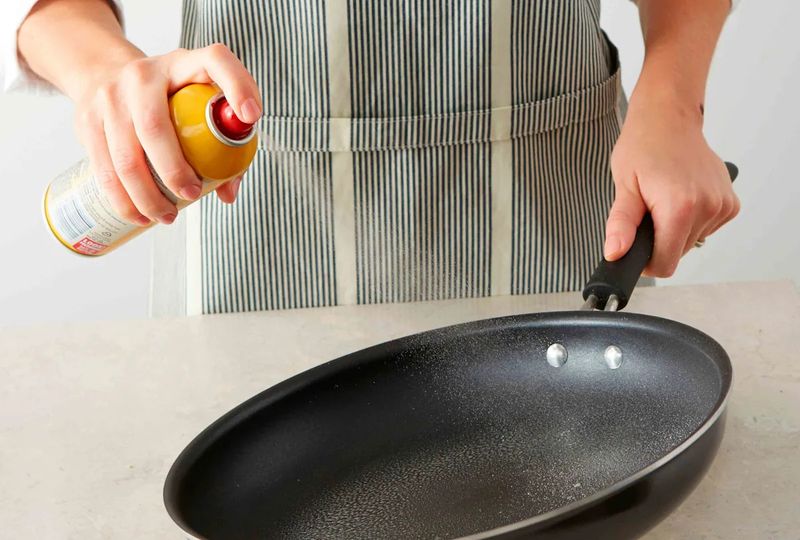
Tired of sticky residues on your nonstick pans? Spraying them with nonstick spray may be the cause. Over time, it creates a gummy buildup that’s hard to clean and affects performance. Instead, opt for a light coating of oil or butter. This not only prevents sticking but also enhances flavor. Your pans will last longer and maintain their slick surface. Consider this a small change with lasting benefits. A quirky fact: Nonstick coatings were discovered accidentally while trying to create a new refrigerant!
6. Relying on the “Sniff Test” for Expired Foods

Think your nose can catch every expired item? The “sniff test” is not foolproof. Some spoiled foods may not emit an off smell, tricking you into consuming them past their prime. Always check expiration dates and inspect the appearance. Trusting sight and smell together gives a clearer picture. This habit ensures you consume fresh, safe food, avoiding unpleasant surprises. Remember: safety first in the kitchen. Fun insight: The sense of smell is closely linked to memory, which is why certain foods can evoke vivid recollections.
7. Boiling Instead of Simmering
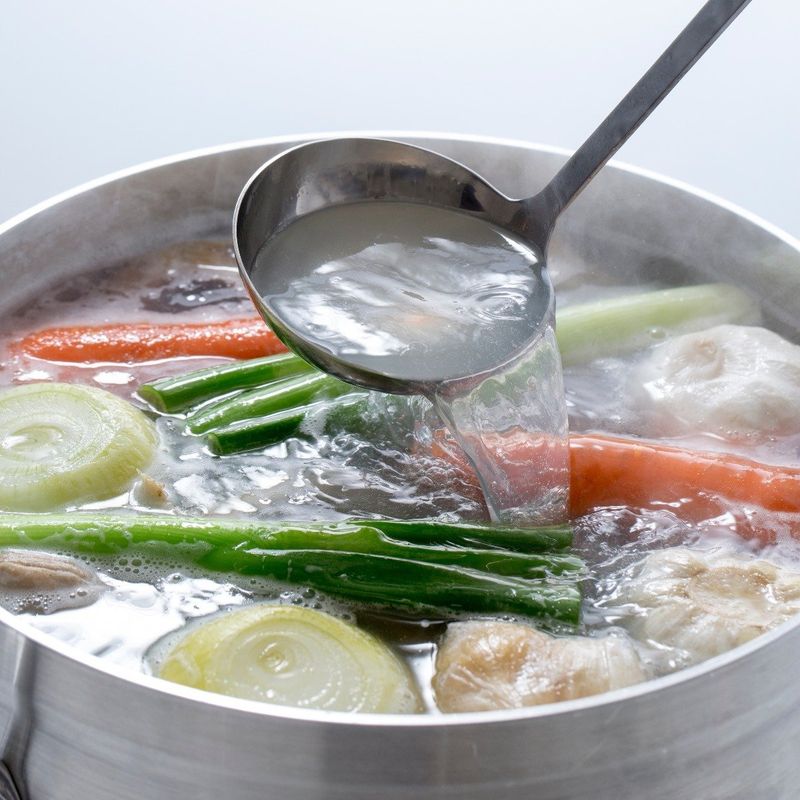
Ever wondered why your stew lacks texture? Boiling instead of simmering might be the reason. While boiling cooks quickly, it can overcook ingredients, breaking them down into mush. Simmering, on the other hand, allows flavors to meld without losing structure. This gentle approach keeps vegetables firm and meat tender. By lowering the heat, you craft a dish that’s both flavorful and texturally pleasing. A culinary tip: Simmering is the secret to many signature flavors, letting them unfold gradually.
8. Eating the Same Breakfast Every Day

Bored of your morning routine? Eating the same breakfast daily can lead to nutrient gaps. Variety is key to a balanced diet, providing essential vitamins and minerals. Mix it up with proteins, fibers, and healthy fats for a nourishing start. This not only benefits your body but also keeps your taste buds engaged. Try oatmeal one day, eggs the next. Your mornings will feel rejuvenated and exciting. Did you know? Breakfast literally means “breaking the fast” after a night’s sleep, kickstarting your metabolism.
9. Not Reading Serving Sizes
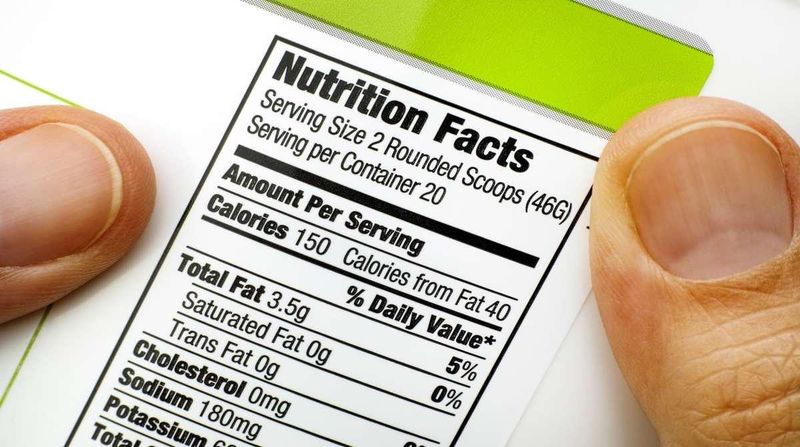
Think you’re consuming just one serving? Many underestimate portions by ignoring serving sizes on labels. This oversight can lead to consuming more calories, sugar, or sodium than intended. Understanding serving sizes helps manage intake and maintain balanced meals. It’s an easy way to keep track of what you eat and how much. By measuring with cups or spoons, you gain awareness of actual portions. Remember: informed choices lead to healthier habits. Fun fact: Serving sizes aren’t recommendations, just standardized units.
10. Peeling All Your Veggies
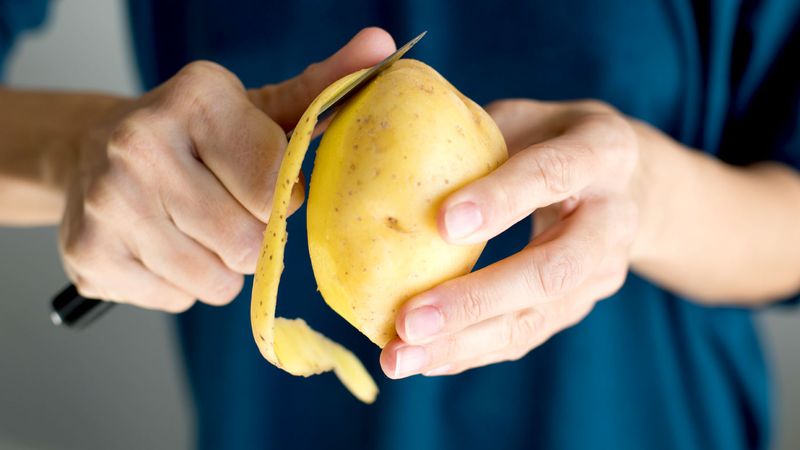
Do you peel veggies out of habit? You might be stripping away valuable nutrients and fiber. Skins on carrots, potatoes, and cucumbers contain essential vitamins and add texture. Embrace their natural form for a nutrient boost and a rustic touch to your dishes. By skipping the peeler, you not only save time but also enhance your meals’ health benefits. Next time, try washing thoroughly and enjoying the wholesome goodness of unpeeled produce. Did you know? The majority of a potato’s fiber is found in its skin!
11. Microwaving in Plastic Containers
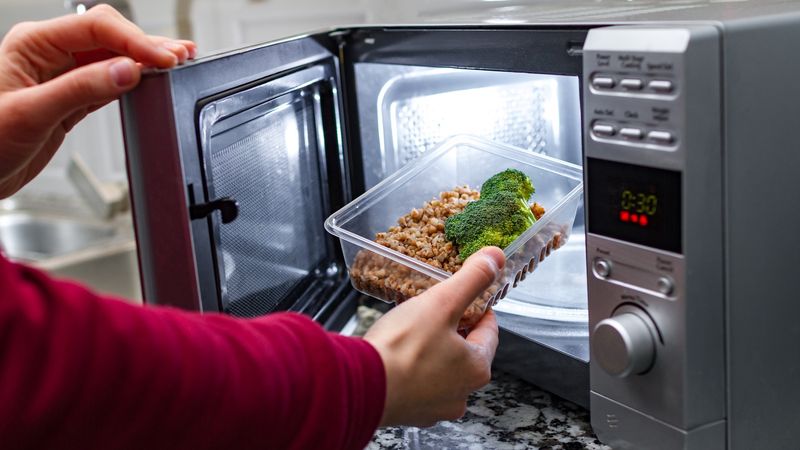
Concerned about chemicals in your food? Microwaving in plastic can release harmful substances into your meals. Heat weakens the plastic structure, causing chemicals to leach out. To ensure safety, use glass or ceramic containers instead. This switch not only preserves flavor but also protects your health. Reassessing your choice of containers can make a significant difference in meal safety. Explore the benefits of safer alternatives today. Fun fact: Microwave ovens were invented accidentally during radar research in World War II!
12. Keeping Bread in the Fridge
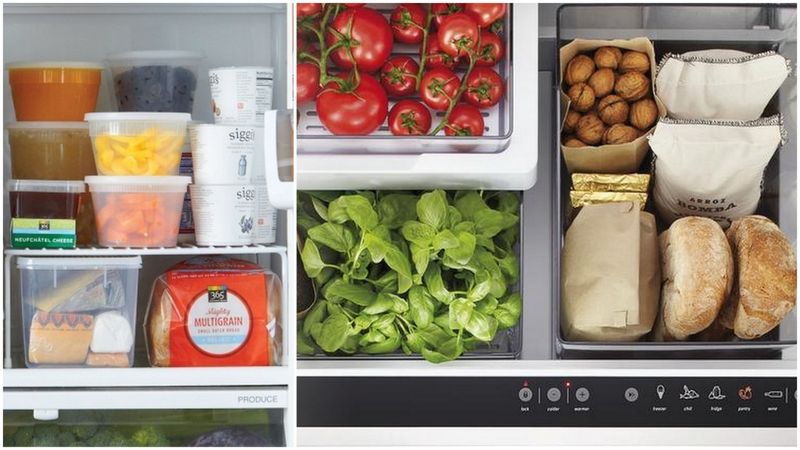
Ever noticed your bread turning stale too soon? Refrigeration might be the culprit. Cold temperatures speed up the staling process, leaving you with dry, crumbly slices. Instead, store bread at room temperature or freeze for longer shelf life. You’ll enjoy softer, fresher slices ready for any meal. Whether it’s a hearty sandwich or toasted delight, your bread will retain its original texture. Did you know? Bread has been a staple for thousands of years, with ancient bakers perfecting their craft.
13. Over-salting Without Tasting
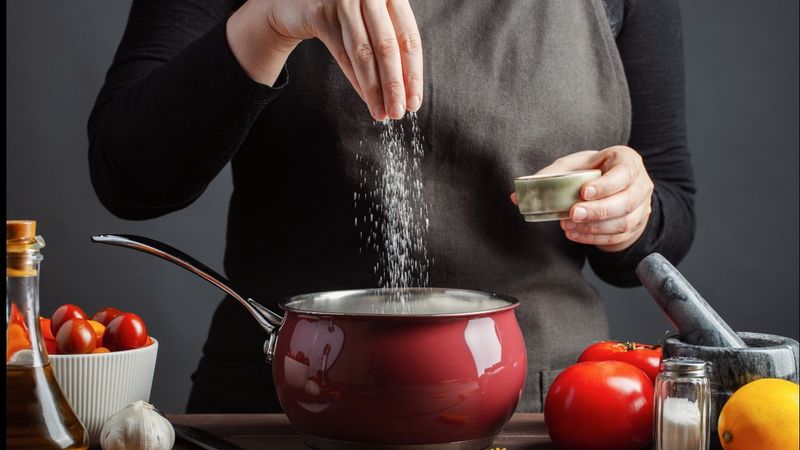
Is your food too salty? Adding salt without tasting can lead to overpowering flavors. Salt enhances, but in excess, it dominates. Always taste before reaching for the shaker. This mindful practice helps balance flavors, creating culinary harmony. A small adjustment like tasting first can transform your cooking experience. By being cautious with salt, you allow other ingredients to shine. Fun tidbit: Salt was once so valuable it was used as currency, known as “white gold”!
14. Using Dull Knives
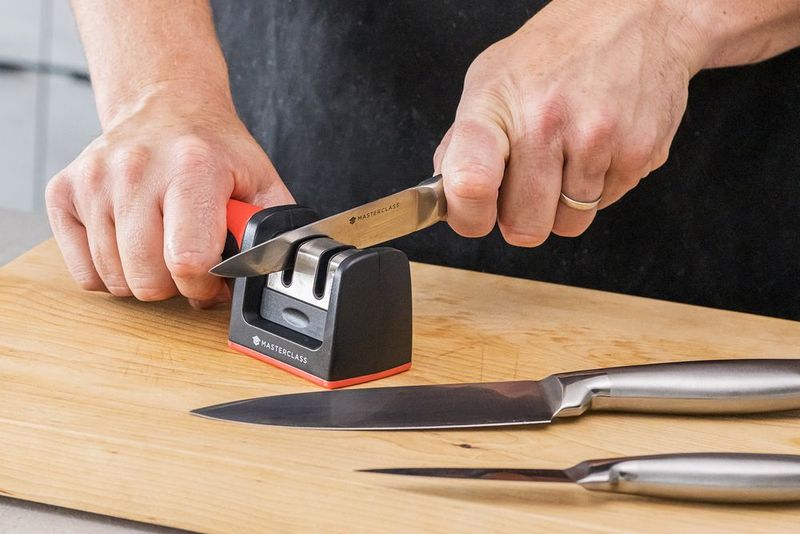
Frustrated with kitchen prep? Dull knives are more dangerous than sharp ones. They slip and require more force, increasing the risk of injury. Regularly sharpening your knives ensures clean, precise cuts and enhances your cooking efficiency. A sharp blade glides through ingredients with ease, making meal prep enjoyable. Consider investing in a sharpening tool for maintenance. Interesting fact: Professional chefs often carry personal knife sets, maintaining them with care for optimal performance.
15. Skipping Breakfast
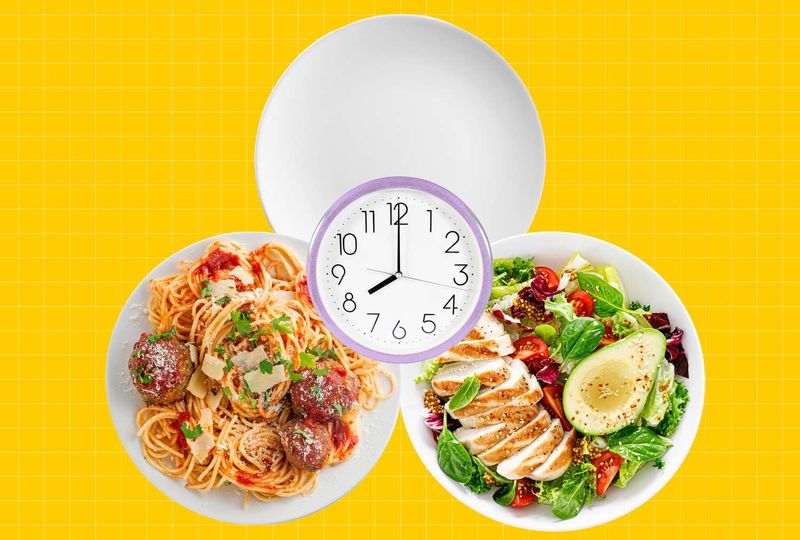
Rushing out without breakfast? Skipping this meal can lead to overeating later in the day. A balanced breakfast jumpstarts metabolism and provides essential energy. Even a small meal makes a difference, supporting concentration and mood. Healthy options include whole grains, fruits, and proteins. By prioritizing breakfast, you set a positive tone for the day. Fun fact: Breakfast habits vary worldwide, from American pancakes to Japanese miso soup!
16. Wasting Leftovers
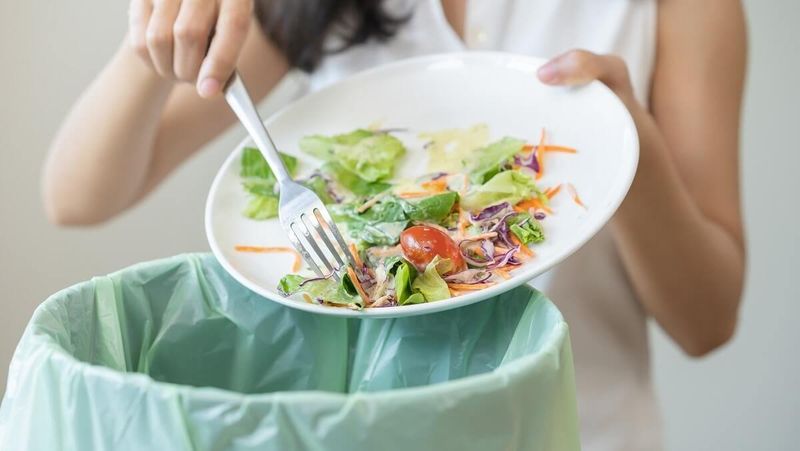
Do you toss leftovers too soon? They are perfect for quick meals or freezing for future use. Repurposing leftovers reduces waste and saves time. Transform last night’s dinner into a creative new dish, adding variety to your meals. By organizing and labeling, you make the most of your efforts. Remember: a little planning makes a big difference. Interesting note: Some cultures, like the French, have recipes specifically for using leftovers, maximizing flavor.
17. Assuming All ‘Healthy’ Labels Are Good

Think “low-fat” means healthy? Labels can be misleading. They often mask high sugar or artificial additives. Reading ingredient lists reveals the true nature of packaged foods. By understanding what’s inside, you make informed choices, prioritizing nutrition over marketing. Don’t be swayed by buzzwords; your health deserves a closer look. Fun fact: The term “natural” isn’t regulated, meaning it can be used liberally on packaging.
18. Defrosting Meat on the Counter
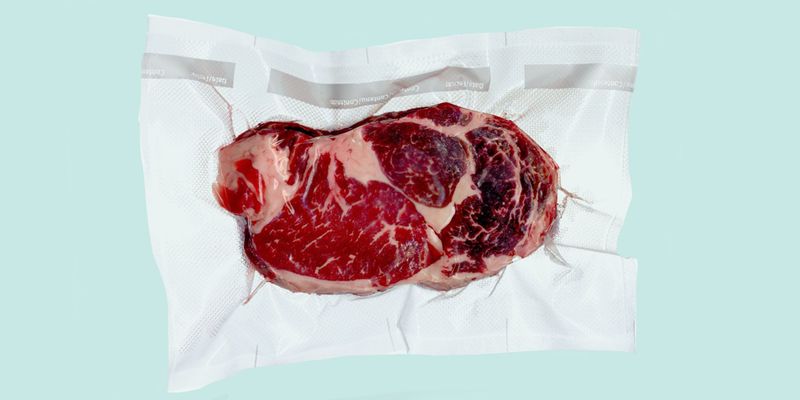
Is your defrosting method safe? Leaving meat on the counter encourages bacteria growth. Thawing in the fridge is safer and maintains meat quality. This method requires planning but rewards with fresher, safer meals. By shifting your approach, you protect against foodborne illnesses. An informed choice leads to peace of mind and better dining experiences. Did you know? Ancient civilizations used ice and cold caves for food preservation, long before modern refrigeration.
19. Stirring Rice Too Much While Cooking
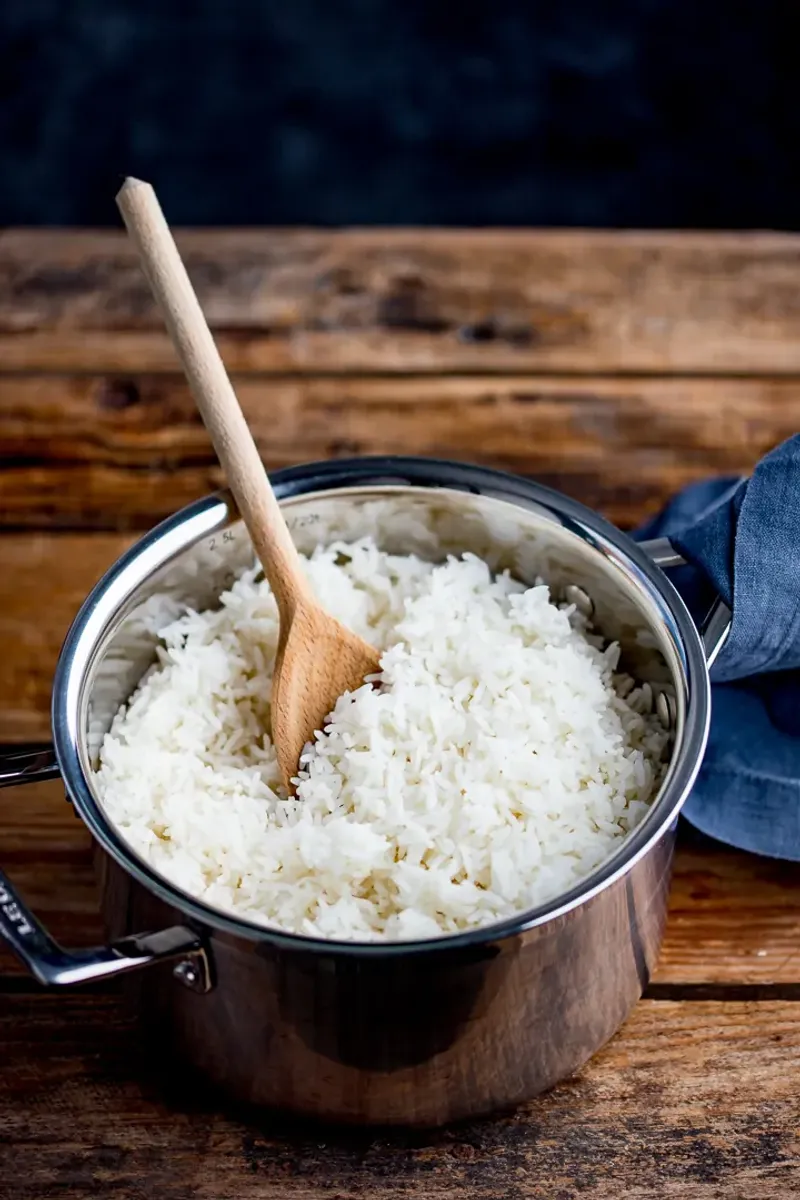
Ever ended up with gummy rice? Over-stirring is often to blame. It releases starches, resulting in a sticky texture. For fluffy grains, minimize stirring and let the rice steam undisturbed. This technique ensures each grain remains separate, perfect for serving. Adjusting your method transforms rice from a clumpy mess into a delightful side dish. Remember: patience is key to achieving culinary perfection. Fun fact: Rice is a staple for over half the world’s population, in various forms and recipes.
20. Not Preheating the Oven

Impatient to bake? Skipping the preheat step can affect texture and cook time. A fully heated oven ensures even cooking, crucial for baked goods. Preheating provides the right environment for rising and browning. By allowing your oven time to reach the desired temperature, you set the stage for culinary success. A simple yet effective step that guarantees satisfaction. Did you know? Professional bakers often rely on oven thermometers for accuracy, ensuring perfect results every time.
21. Relying Too Much on Multivitamins
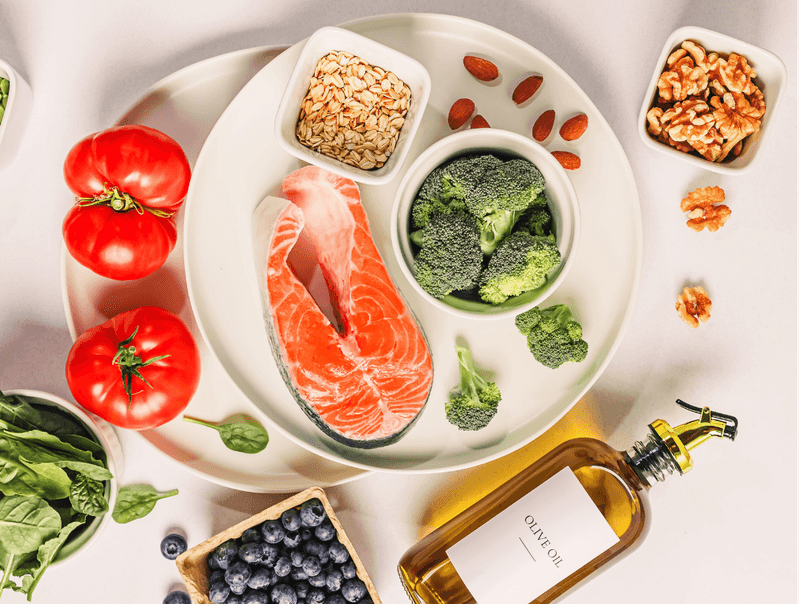
Think multivitamins are a quick fix? They complement, not replace, a balanced diet. Whole foods provide complex nutrients that pills can’t replicate. Prioritize meals rich in fruits, vegetables, and proteins for genuine health benefits. Supplements fill gaps but aren’t magic bullets. By focusing on diet first, you create a foundation of wellness. A thoughtful approach ensures lasting health improvements. Fun fact: Vitamin C was isolated from citrus fruits in the early 20th century, revolutionizing nutrition.
22. Drinking Too Little Water with Meals

Struggling with digestion? Hydration plays a crucial role. Drinking water with meals aids digestion and keeps you feeling full. However, avoid chugging large amounts during bites, as it can dilute digestive juices. Sipping throughout the meal helps maintain balance and supports overall health. By prioritizing water intake, you enhance not only digestion but also nutrient absorption. Fun fact: The human body is around 60% water, highlighting its essential role in daily functions.
23. Using Olive Oil on High Heat

Ever noticed smoke from your pan? Olive oil breaks down at high temperatures, losing its flavor and nutritional value. For frying, choose oils with higher smoke points, like avocado or grapeseed oil. This switch preserves the quality of your meals while protecting the kitchen from smoke. A small change with significant benefits for flavor and health. Did you know? Olive oil has been a staple in Mediterranean diets for centuries, valued for its rich taste and health benefits.
24. Skipping the Ingredient List
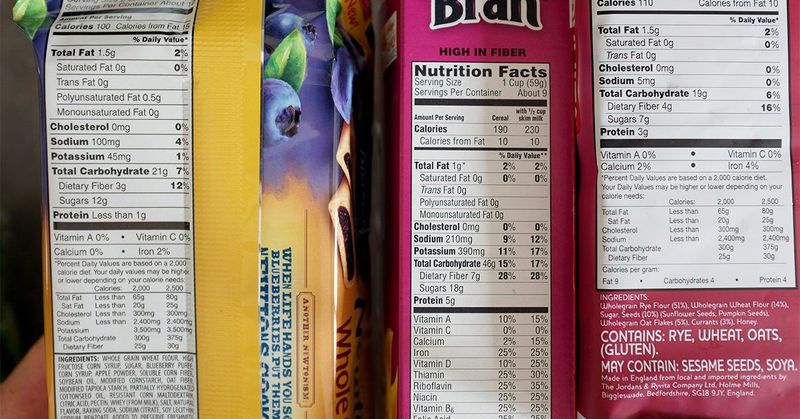
Do you glance over labels? The ingredient list reveals more than front-of-package claims. It’s where the truth about additives and quality lies. Understanding these details helps make informed choices, focusing on transparency over marketing. By checking ingredients, you prioritize health and avoid unwanted surprises. A closer look ensures you’re consuming what you truly desire. Fun fact: Ingredients are listed in order of quantity, from most to least, offering insight into product composition.
25. Buying Too Much Fresh Produce at Once
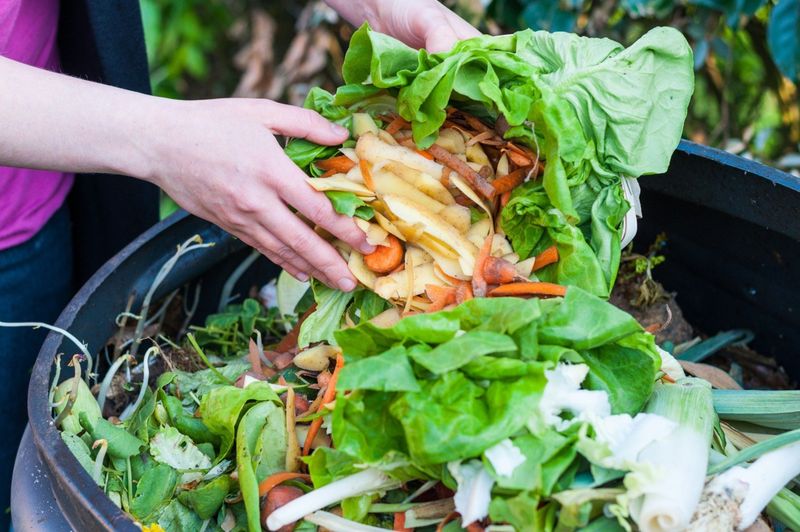
Do your veggies go bad before you use them? Buying too much fresh produce leads to waste and missed flavors. Shopping more frequently or freezing extras can prevent spoilage. This thoughtful approach ensures you enjoy fresh, vibrant produce without guilt. By planning and portioning, you maximize both taste and nutrition. Remember: moderation in purchases leads to satisfaction in consumption. Did you know? Freezing can preserve nutrients, making it a viable option for long-term storage.
